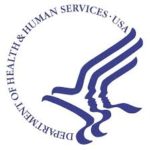The following is the latest health policy news from the federal government for September 29 to October 5. Some of the language used below is taken directly from government documents.
Congress
Last Saturday, Congress passed a 45-day continuing resolution (CR) to fund the federal government through November 17. Part of that limited CR includes a delay of the scheduled $8 billion cut to Medicaid DSH allotments to states through the end of the CR. The bill also extends funding for community health centers and the National Health Services Corps for the same length of time.
Congress will have to act again by November 17 to keep the federal government funded, but it is unclear when Congress will return to its appropriations work. House leadership elections have not yet been set as Republican members are deciding how to proceed. Until House leadership is decided we do not expect much progress on appropriations bills or other legislative priorities.
 Centers for Medicare & Medicaid Services
Centers for Medicare & Medicaid Services
- CMS has written to state health officials to remind them that states must provide 12 months of continuous coverage for children under the age of 19 on Medicaid and the Children’s Health Insurance Program (CHIP) beginning January 1, 2024. The letter provides background information about the importance of continuous coverage and describes policies related to implementing continuous coverage for children as required by the Consolidated Appropriations Act of 2023. Learn more from the CMS letter to state officials and this HHS news release.
- CMS’s Center for Medicaid & CHIP Services has issued a request for comments on processes for assessing compliance with mental health parity and addiction equity in Medicaid and CHIP. In this request the agency outlines its approach to mental health parity and addiction equity, presents the steps it has taken over the years in pursuit of its objectives, and offers a series of specific questions to which it invites interested parties to respond. Find the request for comments here. The deadline for responding to it is December 4.
- CMS has published a guide to help clinicians participating in the Promoting Interoperability performance category of the Merit-based Incentive Payment System (MIPS) apply for a hardship exception during the 2023 performance period. To find the guide go here, scroll down to “Full Resource Library,” and click on “2023 MIPS Promoting Interoperability Hardship Exception Application Guide” for a direct download of the guide.
- CMS has posted a list of the 2023 MIPS quality measures affected by ICD-10 code updates effective October 1, 2023. To find the list go here, scroll down to “Full Resource Library,” and click on “2023 MIPS Quality Measures Impacted by ICD-10 Coding Updates” for a direct download of the list.
- CMS has issued a “Medicaid Transportation Coverage Guide” to serve as a consolidated and comprehensive compilation of both current and new Medicaid transportation policy and to provide guidance on federal requirements and state flexibilities. Learn more from this letter from CMS to state Medicaid directors and the accompanying “Medicaid Transportation Coverage Guide.”
- As part of Sickle Cell Awareness Month, the latest edition of the CMS blog describes the agency’s approach to addressing sickle cell disease built around four major components: expanding coverage and access, improving quality and the continuum of care, advancing equity and engagement, and examining data and analytics. Find the blog entry here and CMS’s new “Sickle Cell Disease Action Plan” here.
 Department of Health and Human Services
Department of Health and Human Services
- HHS and the Treasury Department are seeking public input on how best to ensure coverage and access to over-the-counter preventive services, including the benefits of requiring most health insurance plans to cover these services at no cost and without a prescription from a health care provider. This request for information solicits comment on access to a range of over-the-counter items recommended by experts for preventive care that can be purchased without a prescription, including contraceptives, tobacco smoking cessation products, folic acid during pregnancy, and breastfeeding supplies. Learn more from this HHS news release and this Federal Register announcement with a more detailed explanation of the information the request for information seeks. Stakeholder comments are due by December 4.
- An evaluation by HHS’s Office of the Inspector General has found that while many Medicaid enrollees with opioid use disorder are being treated with medication, disparities in access to care remain, especially among some demographic groups and in certain states. Learn more from the Inspector General’s report and this summary of that report.
- Another review by HHS’s Office of the Inspector General has concluded that while biosimilars have reduced costs for Medicare Part B and enrollees, opportunities remain for additional, substantial spending reductions. Learn more from the agency’s report.
- HHS and its Substance Abuse and Mental Health Services Administration (SAMHSA) have awarded $42.6 million in “Strategic Prevention Framework – Partnerships for Success” grants to 17 states and to 60 communities in 33 states to serve as a foundational investment for substance use prevention in the U.S. Grant recipients will focus on preventing substance use initiation and reducing the progression of substance use and related problems by supporting the development and delivery of state and community substance use prevention and mental health promotion strategies. Learn more about the programs SAMHSA is underwriting with this funding and find links to lists of grant recipients from this HHS news release.
- HHS and SAMHSA have awarded nearly $35 million in grants to bring essential behavioral health services and HIV prevention and care to historically underserved populations. The funding includes $21.9 million for the Minority AIDS Initiative: Substances Use Disorder Treatment for Racial/Ethnic Minority Populations at High Risk for HIV/AIDS; $10.5 million for the Minority AIDS Initiative: Substance Use and Human Immunodeficiency Virus Prevention Navigator Program for Racial/Ethnic Minorities; and $1.9 million for the Minority HIV/AIDS Fund: Integrated Behavioral Health and HIV Care for Unsheltered Populations Pilot Project. Learn more about how SAMHSA anticipates this funding will be used and find links to lists of the grant recipients from this HHS news release.
- HHS’s Advanced Research Projects Agency for Health (ARPA-H) has funded more than $330 million in research to support biomedical health breakthroughs aimed at improving health solutions and care. The projects include:
- $50 million for six contract awards through the Digital Health Security project, a digital security project to protect the U.S. health care system’s electronic infrastructure;
- $26 million for a newly funded project that seeks to lay the groundwork for the development of 3D-printed, fully functional human organs;
- $37 million in funding to seek to restore function to the thymus, an organ responsible for supporting normal immune cell development and potentially restore immune system function as people age;
- a new project to combat the growing threat of antibiotic-resistant bacteria; and
- $115 million in grants to support the launch of three major projects to pursue radical new ways to detect and treat cancer.
- HHS’s Office of Minority Health has awarded two organizations $4 million to support its Center for Indigenous Innovation and Health Equity. The awards will support a five-year initiative to advance sustainable solutions that address Indigenous health disparities and advance health equity in American Indian and Alaska Native and Native Hawaiian and Pacific Islander communities. Learn more from this HHS news release.
- HHS’s Office of Minority Health has awarded more than $1.9 million in grants to four organizations for its National Lupus Outreach and Clinical Trial Education Initiative. Over a three-year period, grant recipients will identify and sustain interventions to advance clinical trial diversity and to reduce health disparities experienced by racial and ethnic minority individuals with lupus. Learn more from this HHS news release.
- HHS’s Office of Minority Health has awarded $2.1 million in grants to three organizations for the Health Equity Leadership Development Initiative. The awards will support a three-year initiative to implement HHS fellowships that provide training in health equity issues and leadership to early-career individuals. Learn more about the program and the grant recipients from this HHS news release.
HHS Newsletters
- CMS – MLN Connects – October 5
- AHRQ News Now – October 3
- HRSA eNews – September 21
- CMS Fall Burden Reduction Newsletter
- CMS – Medicare Provider Compliance Newsletter
 Food and Drug Administration
Food and Drug Administration
The FDA has published a proposed rule regarding laboratory-developed tests, or LDTs, that seeks to ensure the safety and effectiveness of such tests. LDTs are in vitro diagnostic products (IVDs) that the FDA has described as intended for clinical use and designed, manufactured, and used within a single clinical laboratory that meets certain laboratory requirements. The FDA is proposing to provide greater oversight of LDTs by phasing out its general enforcement discretion approach to LDTs and requiring IVD makers to meet the same requirements applied under the Clinical Laboratory Improvement Amendments. Learn more from this FDA news release and this detailed FDA explanation of the proposed regulation, which includes a link to the Federal Register and the proposed regulation itself. Stakeholder comments are due by December 4.
Medicaid Payment Advisory Commission (MedPAC)
MedPAC has responded to the House Ways and Means Committee’s September 7 request for information on improving access to health care in rural and underserved areas. In its letter, MedPAC calls to the committee’s attention some of its past recommendations for improving access to care in rural and underserved areas, including use of the new Medicare designation for “Rural Emergency Hospital”; its recommendation to increase payments to hospitals serving a disproportionate share of low-income patients through use of its own “Medicare safety-net index”; its past recommendations for changes in the hospital wage index to address geographic inequities and improve the accuracy of payments; and its past recommendation for aligning Medicare payment rates across ambulatory care settings for certain services. Find the MedPAC letter here.
Congressional Budget Office
A CBO analysis of the federal Center for Medicare and Medicaid Innovation, created by the Affordable Care Act to test new ways to deliver and pay for health care in Medicare, Medicaid, and the Children’s Health Insurance Program with the goal of identifying approaches that reduce spending or improve the quality of care, has concluded that the agency’s programs increased Medicare spending by $5.4 billion, or 0.1 percent of net spending on Medicare, between 2011 and 2020. Learn more from the CBO report “Federal Budgetary Effects of the Activities of the Center for Medicare & Medicaid Innovation.”
 Stakeholder Events
Stakeholder Events
AHRQ – Webinar on Digital Health Care Innovations to Engage and Empower Patients in Their Care – October 11
HHS’s Agency for Healthcare Research and Quality (AHRQ) will host a panel of experts as part of a webinar on Wednesday, October 11 at 12:30 (eastern) on how patient engagement in health care can help patients and their families make informed decisions about their care and can lead to measurable improvements in safety and quality. The speakers will also share findings from their own research on using digital health care tools to engage patients of all ages, including mobile health applications, wearables, and smart technology. Go here to learn more and find a link for registration. Continuing education credits may be available.
CMS – National Stakeholder Call – October 17
CMS administrator Chiquita Brooks-LaSure and her leadership team will provide an update on the agency’s recent accomplishments and how they are working to advance the agency’s strategic plan during a national stakeholder call on Wednesday, October 17 at 1:00 (eastern). Go here to register to attend the virtual event.
CMS – Medicaid and CHIP – October 25 and December 6
HHS and CMS are holding a series of monthly webinars on Medicaid and CHIP renewals to educate partners. Topic covered vary each month. Go here to register for upcoming webinars.
- October 25 at 12:00 pm (eastern)
- December 6 at 12:00 pm (eastern)
Recordings, transcripts, and slides from past webinars can be found on the CMS National Stakeholders Calls web page.
CMS – Patient-Focused Listening Sessions on Medicare Drug Price Negotiations – October 30-November 15
CMS will host a series of patient-focused listening sessions this fall as part of the Medicare Drug Price Negotiation Program. The virtual public listening sessions will provide an opportunity for patients, beneficiaries, caregivers, consumer and patient organizations, and other interested parties to share input relevant to drugs selected for the first round of negotiations. Learn more about the listening sessions, the schedule for these sessions, the individual drugs to be discussed at each, and how to participate from the CMS drug listening session web page.
CMS – Burden Reduction Conference – November 15
CMS will convene leadership from the federal government, health provider organizations, and the patient advocacy community to focus on opportunities across the health care enterprise to reduce administrative burden, strengthen access to quality care, and make it easier for clinicians to provide that care during a day-long virtual conference it will hold on Wednesday, November 15 beginning at 9:00 (eastern). Go here to learn more about the conference and find a link for registration.
CMS – Town Hall Meeting on FY 2025 Applications for New Medical Services and Technologies Add-On Payments – December 13-14
CMS will hold a virtual town hall meeting on Wednesday, December 13 and Thursday, December 14 during which organizations representing hospitals, physicians, manufacturers, and other interested parties may present comments, recommendations, and data to CMS’s clinical staff about whether individual services or technologies represents a substantial clinical improvement. The meeting will include a discussion of the substantial clinical improvement criteria for the FY 2025 applications for new technology add-on payments. Learn more about the meeting, why it is being held, what it will address, and how to participate from this CMS notice.

 Centers for Medicare & Medicaid Services
Centers for Medicare & Medicaid Services Stakeholder Events
Stakeholder Events